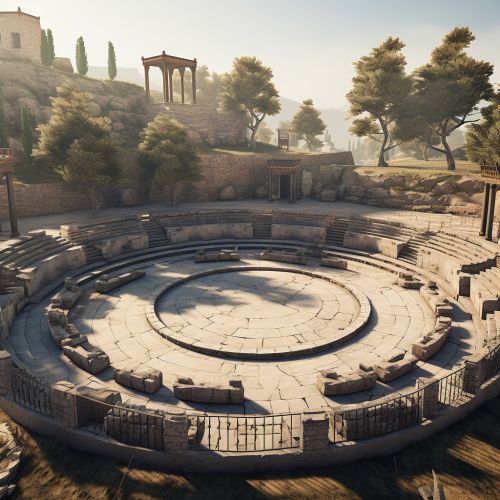Tragedy
Origins of Tragedy
Tragedy, as a form of dramatic representation, has its roots in ancient Greece. It was developed from the choral song of Dionysus, the Greek god of wine, fertility, and revelry. The term "tragedy" itself is derived from the Greek word "tragoidia", which means "goat song". This is possibly a reference to the ritual sacrifice of a goat that was part of the Dionysian celebrations.


Structure of Tragedy
A tragedy typically consists of several key elements. The protagonist, or tragic hero, is a character of high standing who experiences a downfall due to a tragic flaw or hamartia. This flaw is often a personality trait such as pride, jealousy, or ambition. The tragic hero's downfall is usually preceded by a moment of anagnorisis, or recognition, where the hero realizes the consequences of their actions. This is followed by a scene of peripeteia, or reversal, where the hero's fortunes take a turn for the worse. The tragedy concludes with a catharsis, a purging or cleansing of the audience's emotions.
Classical Tragedies
The earliest surviving tragedies are those of Aeschylus, Sophocles, and Euripides, three of the greatest playwrights of ancient Greece. Aeschylus' tragedies, such as "The Persians" and "Prometheus Bound", are noted for their grandeur and moral seriousness. Sophocles' tragedies, including "Oedipus Rex" and "Antigone", are renowned for their complex characters and profound exploration of human suffering. Euripides' tragedies, like "Medea" and "The Bacchae", are known for their psychological realism and exploration of irrational human behavior.
Tragedy in Shakespeare's Works
In the English literature, William Shakespeare is perhaps the most famous writer of tragedies. His tragic plays, including "Hamlet", "Macbeth", "Othello", and "King Lear", are noted for their exploration of human nature, complex characters, and poetic language. Shakespeare's tragedies often involve a tragic hero who is brought down by a fatal flaw in their character, a theme that he inherited from classical Greek tragedy.
Modern Tragedy
In the modern era, tragedy has taken on new forms and explored new themes. Playwrights such as Henrik Ibsen, Arthur Miller, and Tennessee Williams have used the form of tragedy to explore social issues and the human condition. In these modern tragedies, the tragic hero is often an ordinary person, and their downfall is brought about by societal pressures and personal failings, rather than by fate or the gods.
